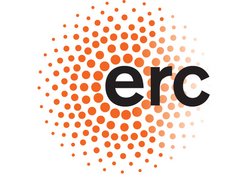13 Starting Grants for Max Planck researchers
MPG the most successful German institution in the third round of the competition
The European Research Council (ERC) has awarded its Starting Grants for 2016. Among the winners in the contest were three female and ten male scientists from Institutes of the Max Planck Society. They will each receive up to 1.5 million euros for their research projects.

Starting Grants are awarded annually by the ERC. Scientists who received their doctorates between two and approx. seven years previously are invited to take part in the competition for funding, provided that they intend to carry out their project at a European research institution. The Max Planck Society was the most successful institution in Germany in this third round of applications under the EU Framework Programme for Research and Innovation "Horizon 2020", ahead of the Helmholtz Association and the TU Munich (7 Grants).
Germany came first in the nationality ranking this time around, with a total of 61 Grants going to researchers working at German institutions. Great Britain came in second (59 Grants), followed by France (46 Grants), the Netherlands (29 Grants) and Switzerland (20 Grants).
The ERC supports research projects in every field of science, the deciding factor being the scientific excellence inherent in each project. Seven of the 13 Max Planck Grants went to scientists researching in the area of Chemistry-Physics-Technology, four to researchers in the Life Sciences and two to researchers in the Human Sciences. The individual scientists with cause for celebration are:
- Kerstin Bartscherer, MPI for Molecular Biomedicine
- Tilman Birnstiel, MPI for Astronomy
- Knut Drescher, MPI for Terrestrial Microbiology
- Martin Eckstein, MPI for the Structure and Dynamics of Matter
- Andreas Grüneis, MPI for Solid State Research
- Johannes Hunger, MPI for Polymer Research
- Tim Lämmermann, MPI of Immunobiology and Epigenetics
- Hannes Link, MPI for Terrestrial Microbiology
- Philip Moll, MPI for Chemical Physics of Solids
- Alexander Shapiro, MPI for Solar System Research
- Christoph Rademacher, MPI of Colloids and Interfaces
- Alyson van Raalte, MPI for Demographic Research
- Sahana Udupa, MPI for the Study of Religious and Ethnic Diversity












